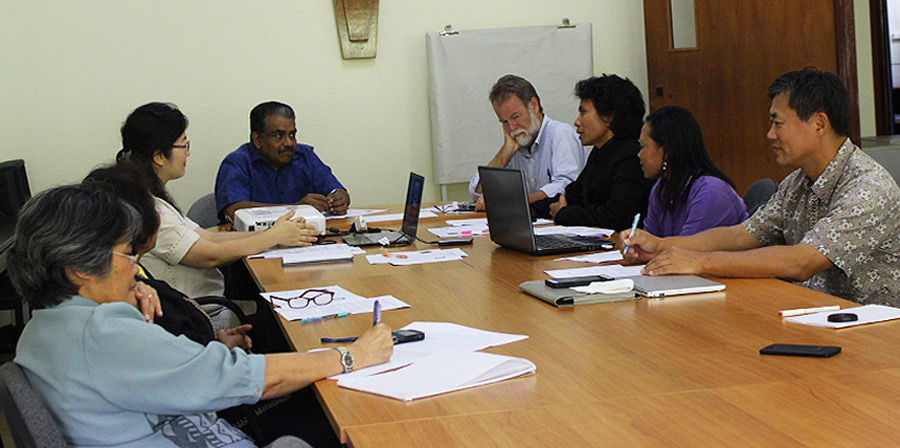CCA commits to assisting East Timor Church in Theological Education

The Christian Conference of Asia (CCA) organised a two-day workshop to assist the Protestant Church in East Timor, Igreja Protestant Iha Timore Lesteorosa’e (IPTL) in their efforts to develop a theological education curriculum for their newly established theological training institute - East Timor Christian Institute’s (ETCI).
The workshop held at the CCA Headquarters in Chiang Mai, Thailand on 4-5 October 2016, brought together a group of representatives from the IPTL and experts in theological education.
The IPTL has recently completed the construction of its theological educational institute ETCI aimed at the continued learning and capacity-building of pastors and evangelists in East Timor. The institute is expected to open in early 2017.
The workshop organised by CCA was in response to the IPTL’s request to facilitate developing short- and long-term plans for academic courses that will help the Church of East Timor to create an ecumenical vocational institution. Such an institution will be able to fulfill the social and religious obligations to its community by equipping students with Biblical and theological knowledge, as well as skills to carry out social services.
While conversing with the participants at the beginning of the workshop, CCA General Secretary Dr. Mathews George Chunakara recollected the history of the long association between the CCA and the IPTL and the CCA’s initiatives for accompanying the people and the churches in East Timor, who have been struggling for independence since the late 1970’s. He told the East Timorese church leaders that “you are not alone and the churches and members of the worldwide ecumenical family will be with you as you continue to be engaged in your witness”.
“Over the years, the CCA has organised several ecumenical leadership development training programmes in East Timor and assisted the IPTL to be part of the mainstream Asian ecumenical movement. The CCA is committed to accompanying the IPTL in the coming years, especially in helping and facilitating the training and ecumenical formation of the pastors, evangelists, and prospective lay women and youth leaders of the church,” the CCA General Secretary added.
The two-day session focused on identifying the current challenges faced by the Church in East Timor in comparison with other churches in Asia; mainly that of limited pastors and their lack of developed skills in running self-sustaining ministries in East Timor.
“We are here to learn from the CCA how to better manage this institute. Our hope is that this institute will not only train our pastors, but also broaden Christian education by including vocational training,” said Rev. Juliana Temparaja, General Secretary of the IPTL.
Several strategies to create a shared learning between pastors and members of the Church were also discussed at the workshop, where both could generate income and help the Church in its mission.
Special emphasis was placed on developing a unique and contextual nation-building theology through training at the institute, which will also include the people’s struggle, political history and the indigenous culture of East Timor.
Rev. Jung Eun Moon, Program Coordinator CCA, said that “The CCA has, in the past, organized several training sessions in East Timor, and looks forward to assisting the IPTL to identify the current realities of the country and accompany the churches in its ecumenical formation and leadership development at the grass root levels.”
Various sessions of the workshop were facilitated by Dr. Hope Antone, United Board for Christian Higher Education in Asia, Rev. Dr. John Campbell-Nelson, Universitas Kristen Artha Wacana Kupang, Rev. Dr. Chuleepran Srisoontorn, Program Consultant, CCA, McGivallry Faculty of Divinity, Payap University and Rev. Jung Eun Moon.










